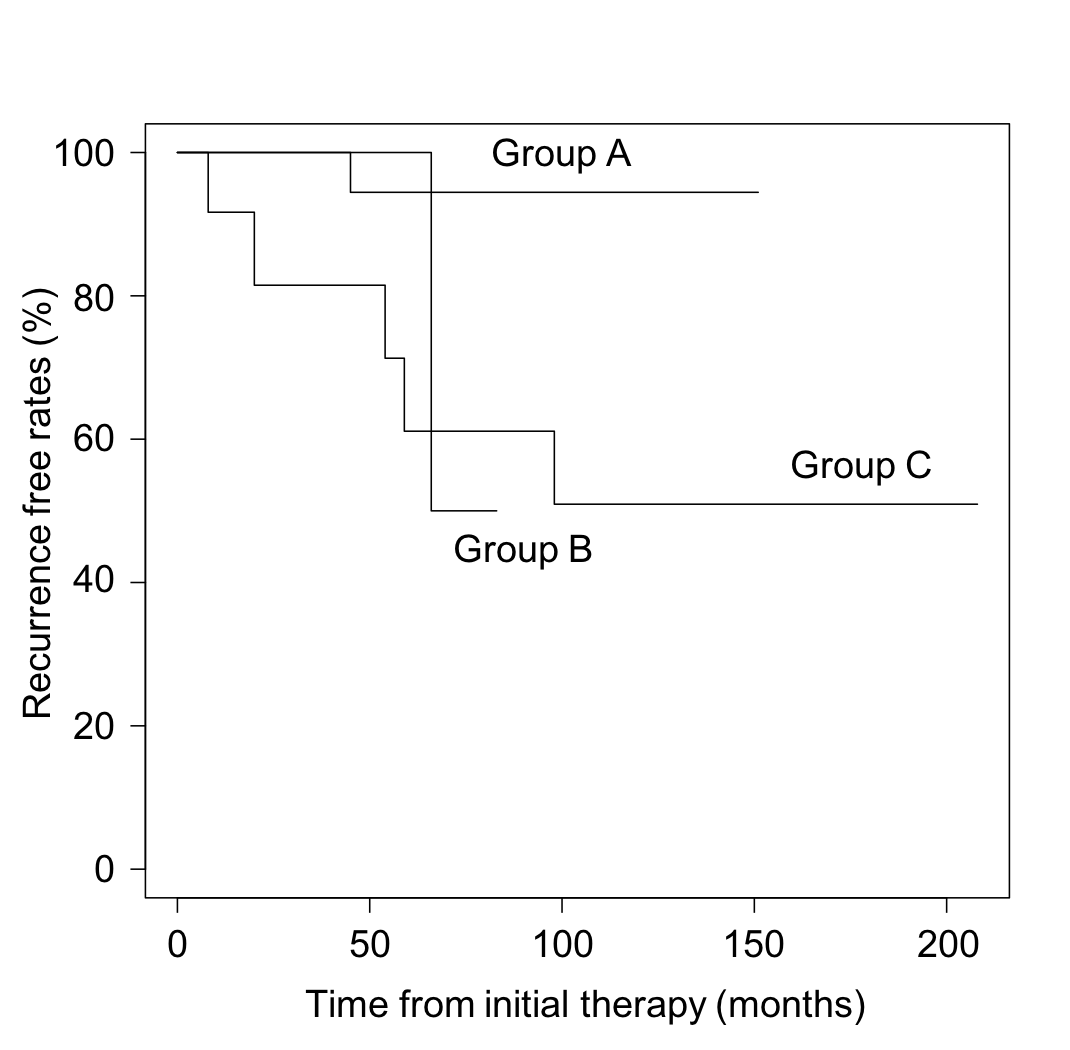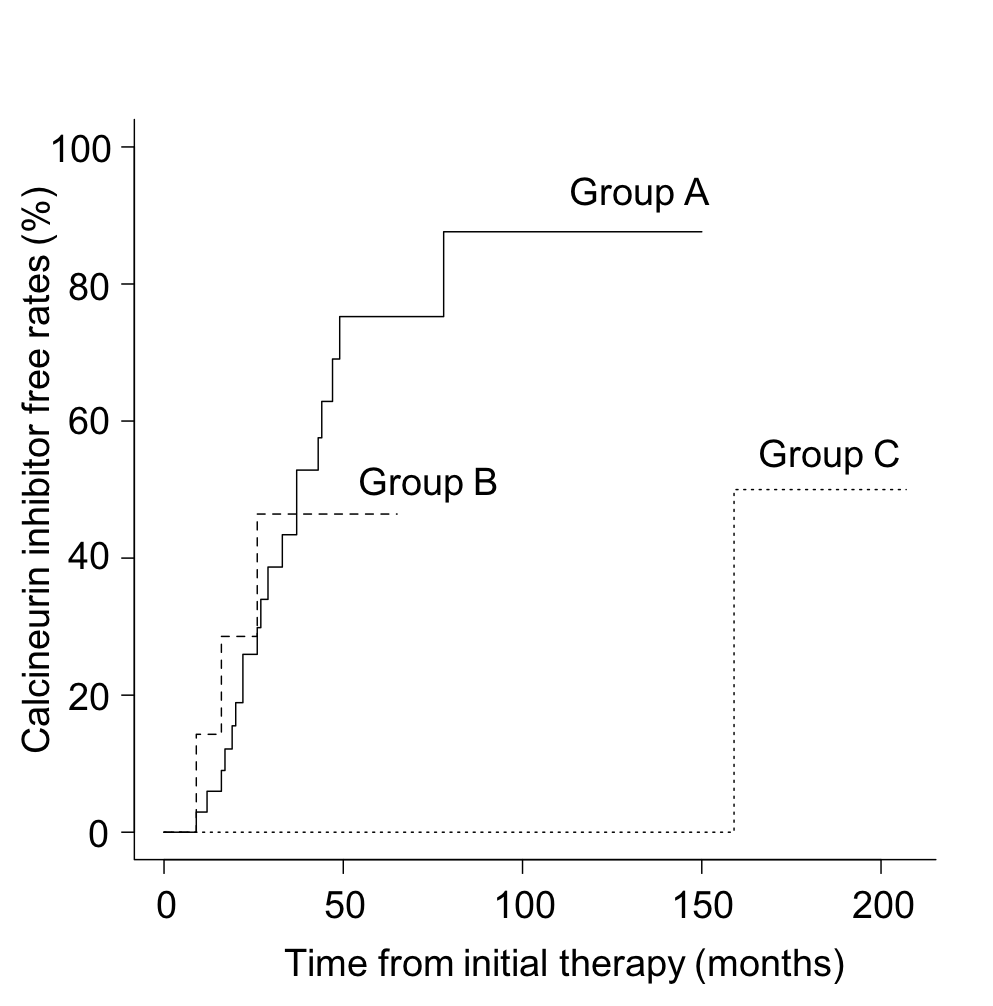Session Information
Session Type: Poster Session (Monday)
Session Time: 9:00AM-11:00AM
Background/Purpose: Interstitial lung disease (ILD) accompanied by anti-melanoma differentiation associated gene 5 (MDA5)-positive dermatomyositis (DM) is often rapidly progressive and associated with poor life prognosis in Japanese patients. Recently, combined immunosuppressive therapy such as high-dose glucocorticoid (GC), calcineurin inhibitor (CNI), and intravenous cyclophosphamide (IVCY) has been suggested to be so effective that the prognosis has been improved. However, after achieving remission, appropriate maintenance therapy is still unclear. In this study, we evaluated the effect of induction therapy on maintenance therapy and looked into the possibility of drug-free remission.
Methods: We retrospectively examined the medical records of 86 anti-MDA5-positive adult DM-ILD patients in Kyoto university hospital. There were 57 patients who had achieved remission and survived more than 6 months. According to the induction treatment, we classified into 3 groups, Group A (n=37); simultaneous triple combination therapy (GC, CNI and IVCY with all drugs started within a week), Group B (n=8); step-up triple combination therapy (initiation of IVCY delayed up to 3 month)) and Group C (n=12); mono/dual-therapy (GC with or without CNI). We compared the recurrence rates by using log-rank test. We also compared the maintenance dose of GC at 36 months since initial treatment and the rates of drug free patients.
Results: The recurrence rates of Group A, B and C were not significantly different (p=0.07, log-rank test). The recurrence rates at 36 months since initial treatment were 0%, 0%, 19%, respectively (Figure 1). The dose of GC in Group A, B and C were 3.4±2.2 vs 4.0±1.2 vs 6.3±2.2 mg/day, respectively (p< 0.05, Kruskal-Wallis test). Although the drug free rates from GC were not significantly different (13% vs 0% vs 0%, p=0.07, Figure 2), the CNI free rates of Group A were significantly higher than that of Group C (43% vs 0%, p< 0.01 with Bonferroni correction, Figure 3).
Conclusion: Triple combined immunosuppressants for induction therapy could reduce the maintenance dose of immunosuppressants and the risk of recurrence in anti-MDA5-positive DM-ILD. Moreover, initial combination therapy might lead some patients to achieve drug-free remission.
To cite this abstract in AMA style:
Sasai T, Nanashima R, Mimori T, Tsuji H, Akizuki S, Murakami K, Hashimoto M, Yoshifuji H, Tanaka M, Ohmura K. Maintenance Therapy for anti-MDA5-Positive Dermatomyositis Patients with Interstitial Lung Disease: Can They Achieve Drug-Free Remission? [abstract]. Arthritis Rheumatol. 2019; 71 (suppl 10). https://acrabstracts.org/abstract/maintenance-therapy-for-anti-mda5-positive-dermatomyositis-patients-with-interstitial-lung-disease-can-they-achieve-drug-free-remission/. Accessed .« Back to 2019 ACR/ARP Annual Meeting
ACR Meeting Abstracts - https://acrabstracts.org/abstract/maintenance-therapy-for-anti-mda5-positive-dermatomyositis-patients-with-interstitial-lung-disease-can-they-achieve-drug-free-remission/



